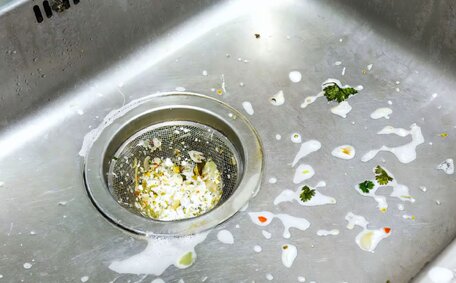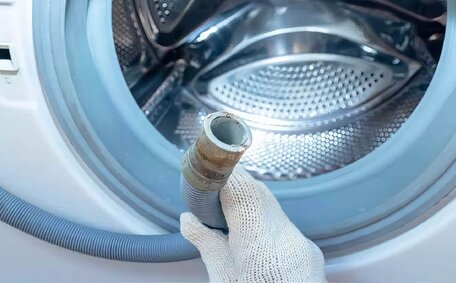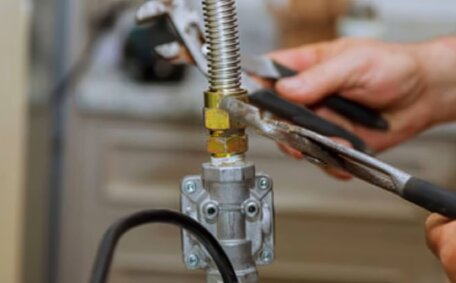Recognizing the Signs of a Blocked Drain Emergency
Prompt recognition of blocked drain emergencies is crucial to averting property damage and safeguarding health. Neglected blockages can cause significant property damage and pose substantial health and safety hazards.
There are several key signs of a potential blocked drain emergency to look out for:
- Slow flow or completely stopped drainage from sinks, tubs, showers, or toilets
- Unpleasant sewage odours coming from drains or appliances
- Gurgling sounds from pipes
- Water backing up from floor drains or toilets
Noticing these issues often suggests a likely full or partial blockage in your drainage system. Quick action is vital to prevent the blockage from intensifying into a larger emergency.
Homeowners should be aware of these signs, as blocked drains can swiftly become dire. Early detection of issues effectively prevents health risks, property damage, and further complications due to sewage backups.
Causes and Prevention of Blocked Drains
Blocked drains often result from improper disposal of food, hair, and other debris down sink and shower drains. Most common causes include:
- Pouring fats, oils, and grease down your drain - these can solidify and cling to pipe walls
- Allowing food particles, coffee grounds, and egg shells to wash down drains instead of the trash
- Not using sink strainers to catch food debris
- Allowing too much hair and soap residue to accumulate in bathroom sink and tub drains
Fortunately, blocked drains can often be prevented with simple household habits, such as:
- Scraping and wiping plates instead of rinsing food down the drain
- Pouring cooking oils and fats into a heat-safe container to solidify, then disposing in the trash
- Brushing hair and cleaning sinks/tubs prior to showering to remove existing debris
- Regularly flushing drains with hot water, vinegar, or baking soda maintains unobstructed water flow
Adopting simple preventative measures can also allow homeowners to avoid extensive plumbing repairs down the road. If you suspect a blockage, Early intervention often results in faster and less invasive solutions.
Immediate Actions to Take During a Drain Emergency
In a blocked drain emergency, it’s vital to act quickly to prevent the situation from worsening. Proceed with caution and avoid panic, especially when dealing with gas hot water systems, if you’re trying do-it-yourself solutions. Here are important first response steps:
- Turn off all water fixtures and stop additional flow to the clogged drain. This helps prevent backups.
- Check outside cleanouts for visible blockages you can safely remove by hand.
- Boil several pots of water for your water gas system, let cool slightly, then slowly pour down the blocked drain. The heat can help dissolve grease clogs, particularly effective with gas hot water systems.
- Use a plunger over the drain for several minutes to attempt clearing any debris. Cover overflow drain holes first.
- Try a hand-crank snake to loosen clogs, but avoid powered drain augers if unfamiliar with proper use.
- Minimise additional wastewater input to affected drains until the blockage clears.
Use chemical drain cleaners cautiously as incorrect use may damage pipes or cause injury, and seek professional assistance if needed. If simple attempts fail to open the drain within 30 minutes, STOP all efforts and call emergency services immediately. Timeliness is key for effective solutions that prevent lasting damage or unhealthy conditions.
When to Call a Professional Plumber
As blocked drains can rapidly escalate into emergencies, it’s vital to know when to call for professional assistance. There are certain scenarios that indicate a severe blockage or damage requiring urgent expert intervention:
- Stagnant water is present in sinks/tubs and does not recede after several hours
- Unpleasant odours persist despite attempted drain cleaning solutions
- No water is draining at all from a fixture or floor drain
- You suspect a blocked sewer line is the culprit based on widespread backup
- Attempted removal with a plunger, snake, or boiling water has failed after 30 minutes
- Significant flooding into your home or yard has occurred
In such cases, halt all DIY efforts and seek professional help without delay.
Be ready to explain the issue and detail any actions you’ve already attempted when you call for help. Our services are available at all times to address plumbing emergencies, including blocked drains.
Safe DIY Methods to Try at Home
When faced with minor drain blockages, there are several safe DIY methods homeowners can attempt before calling a professional:
Using a Plunger
Plunging can effectively dislodge clogs near the drain opening. Before plunging, ensure the overflow holes are sealed firmly with a wet cloth or tape. This creates pressure that can dislodge the blockage without harming your pipes.
Baking Soda and Vinegar
The combination of baking soda and vinegar generates a reaction that helps to clear debris effortlessly. Pour 1/2 cup of baking soda down the blocked sink, add 1 cup of hot white vinegar, and then flush with boiling water to cleanse the home’s plumbing system. This effervescent reaction helps dissolve soap scum, hair, and grease build-up.
Hand-Crank Auger
A hand-crank auger threads through pipes to capture and dislodge obstructions like hair, particles, and grease.
After using the auger, flush the pipes with hot water to clear any dislodged debris.
Exercise caution when attempting any DIY cleaning on plumbing fixtures and stop if the drain remains fully clogged after 30 minutes. For major blockages or issues with the main sewer line, steer clear of DIY efforts and call a plumber for expert diagnosis and repair.
How to Maintain Clear Drains
Consistent drain maintenance is key to avoiding blockages and ensuring a steady water flow in your plumbing system. Here are important tips for maintaining clear drains:
Monthly Drain Cleaning
Each month, pour 1⁄2 cup of baking soda into each drain, immediately followed by 1 cup of warm white vinegar. Allow the mixture to fizz for 10-15 minutes then flush with hot water. The reaction helps break down grease, hair, and soap scum, preventing buildup.
Prevent Debris Buildup
Use sink strainers and drain catchers to prevent food particles and hair from washing down drains. Before rinsing, wipe plates and cookware to minimise residue entering the drain. Refrain from flushing non-liquid items that are unsuitable for the drainage system.
Flush Regularly with Hot Water
Weekly, run boiling water through each drain to dissolve grease accumulations and maintain an effective drainage system. For drains that you seldom use, periodically pour boiling water down to prevent water stagnation.
Adopting consistent drain care practices significantly reduces the risk of severe blockages that necessitate emergency plumbing repairs.






